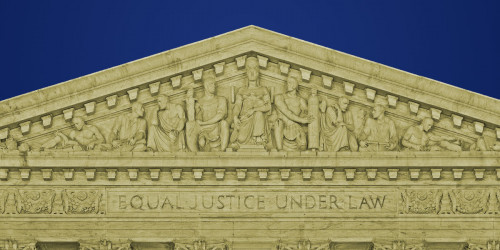With Ghana's 'Promotion of Proper Human Sexual Rights and Ghanaian Family Values Bill, 2021' set to undergo its second reading in the Ghanaian Parliament, EFF and other civil society partners are calling on the government of Ghana to immediately reject this draconian bill and commit instead to protecting the human rights of all people in Ghana.
As we've said before, this bill is not only an assault on the rights of LGBTQI+ people to exist, but it also represents a grave threat to freedom of expression. While Ghanaian law has long criminalized same-sex sexual activities, the new proposal goes much further by threatening up to five years in jail for publicly identifying as LGBTQ or "any other sexual or gender identity that is contrary to the binary categories of male and female."
The sentence increases if the offending person expresses their gender beyond or identifies outside of the so-called "binary gender." The bill also has a blanket prohibition on advocating for LGBTQI+ rights and explicitly assigns criminal penalties for speech posted online, and threatens online platforms—specifically naming Twitter and Meta products Facebook and Instagram—with criminal penalties if they do not restrict pro-LGBTQ content.
The letter continues:
As government officials, it is your duty to safeguard the accountability mechanisms that ensure Ghana’s government adheres to its obligations to protect and promote human rights.
We therefore recommend that:
- The Committee on Constitutional, Legal and Parliamentary Affairs recommend that Parliament of Ghana reject the Promotion of Proper Human Sexual Rights and Ghanaian Family Values Bill, 2021 in its entirety.
- The Parliament of Ghana reject the Promotion of Proper Human Sexual Rights and Ghanaian Family Values Bill, 2021 in its entirety.
- The Attorney General revises his position on Clauses 12 and 13 of the bill, and recommends that the Parliament should reject the bill in its entirety.
- Members of Parliament safeguard LGBTQ+ people’s human rights by submitting a petition to repeal Section 104 (2) of the Criminal Offences Act, 1960.










